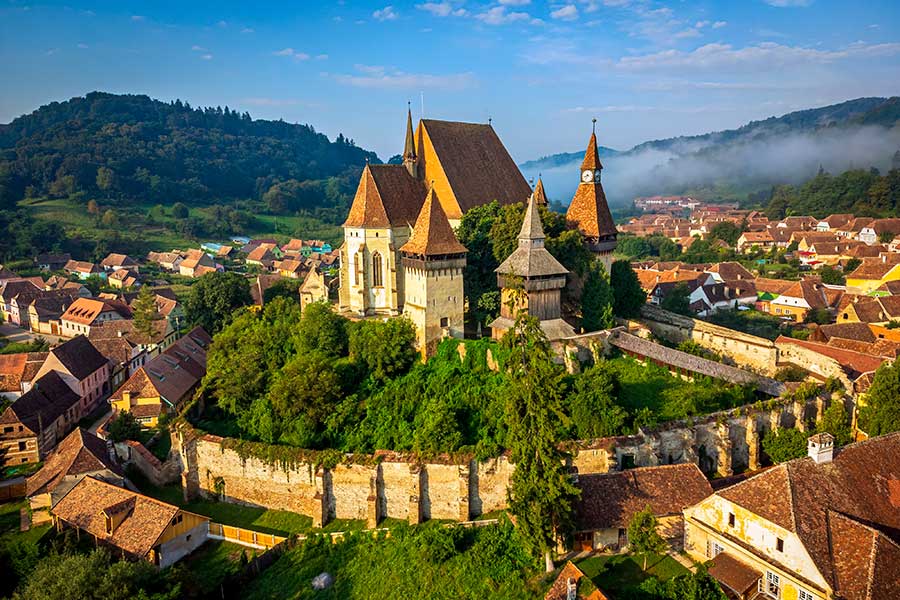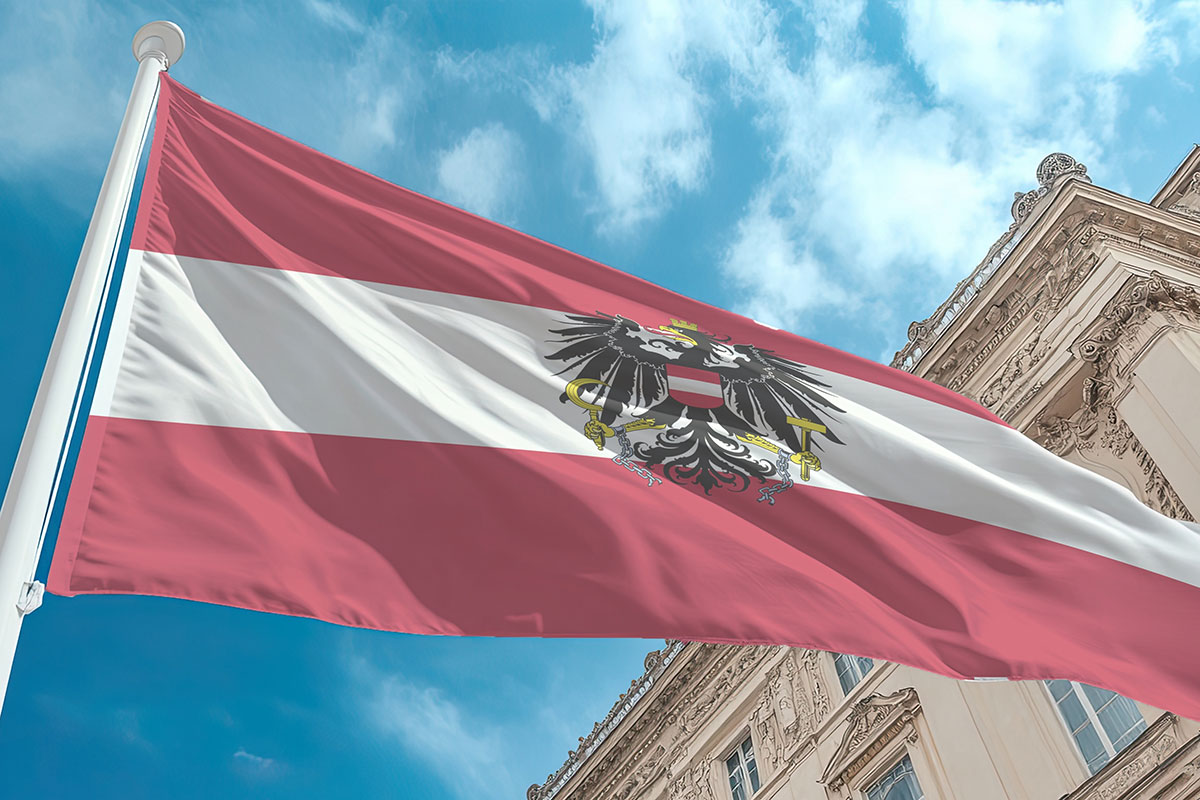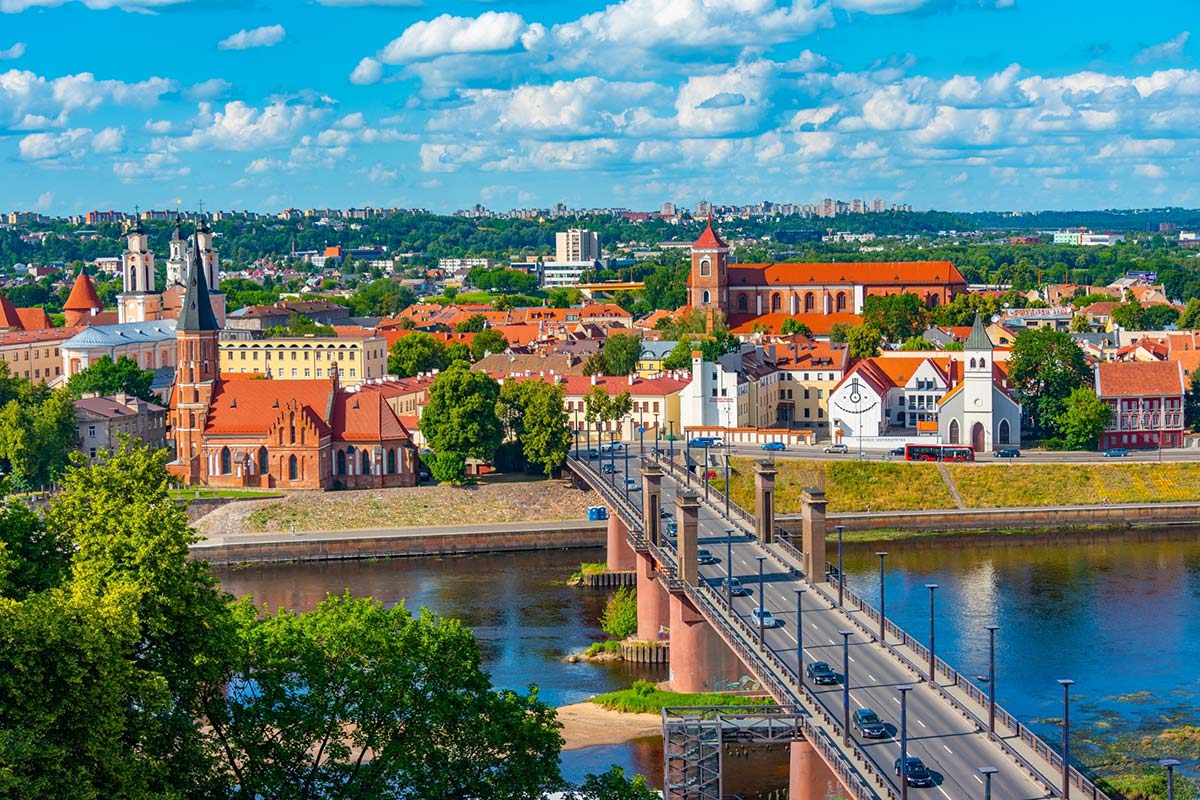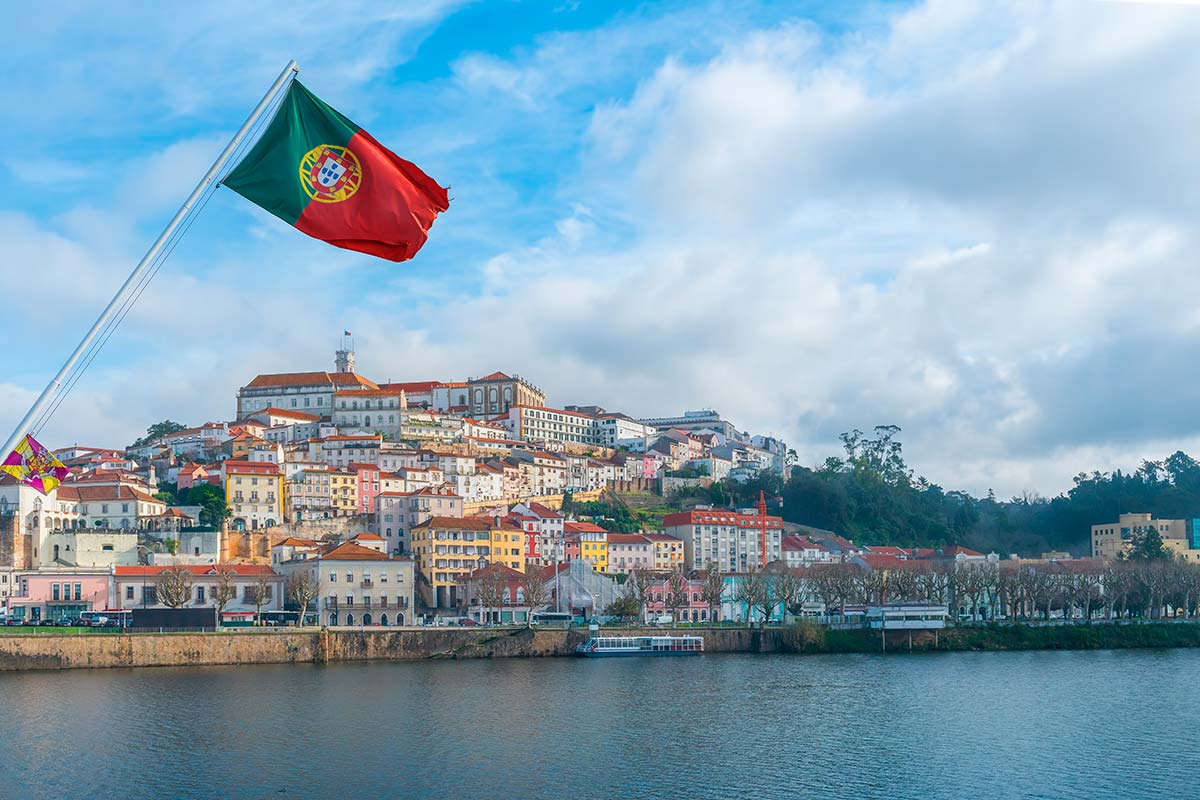Content
Immigrating to Romania through the standard naturalization process begins with obtaining a national visa, which allows you to apply for a temporary residence permit (VISA/RT), followed by permanent residency and eventually citizenship. This immigration route is available to students, employees, family members of Romanian citizens and residents, entrepreneurs, investors, researchers, and religious workers.
However, there is also a simpler way to move to Romania — by acquiring EU citizenship through a simplified procedure. Our specialists provide full support in selecting the most suitable immigration program and handling all documentation from start to finish.
Pros and Cons of Immigrating to Romania
Romania attracts foreign nationals with its favorable living conditions. Housing, groceries, and clothing are affordable, and car prices are 20–30% lower than in moderately developed countries.
Key advantages of relocating to Romania include:
- Low taxes. Individuals and companies pay a flat income tax of 16%, while small businesses are taxed at just 3% of their profit.
- Business-friendly environment. The current Companies Act no longer requires a minimum share capital, allowing entrepreneurs to start a business regardless of available funds.
- Family immigration opportunities. Relatives of a foreign national who obtains residency or citizenship can receive a residence permit through a simplified process.
- High-quality healthcare. Medical services in Romania are above the European average in quality, but more affordable. Residents and citizens have access to full coverage, including surgical care.
- Internationally recognized education. Graduates of Romanian universities can work anywhere in the EU without needing to validate their diplomas.
- Mild climate. Winters rarely fall below -5°C (except in mountainous regions), and summers are comfortably warm at around +25°C.
- Architectural and cultural diversity. Influences from the Ottoman and Austro-Hungarian empires shaped Romania’s architectural landscape, resulting in a mix of Byzantine, Gothic, and Neoclassical styles across its cities.
At the same time, certain challenges exist. Foreign nationals without citizenship may find it difficult to secure official employment, as Romanian and EU citizens are given hiring priority. Additionally, full integration during the naturalization process requires Romanian language proficiency, since English is commonly spoken only in tourist areas.

Grounds for Relocating to Romania
Foreign nationals move to Romania to live in a safer and more developed country, start a business, pursue education, work for local companies, reunite with family members, or seek international protection. The standard immigration procedure, which lasts 8 years, begins with obtaining a national visa and is followed by the issuance of a residence permit.
There are, however, faster alternatives. For example, investors who contribute at least €1,000,000 to the Romanian economy may be eligible for a long-term residence permit without the need to live in the country for several years beforehand. They may also apply for citizenship after just 4 years of legal residence.
Still, the most accessible and cost-effective option is offered under the government’s simplified citizenship program — Romanian citizenship can be granted in as little as 12 months, with no language test and no financial proof required.
Employment-Based Immigration to Romania
The right to reside in Romania for employment purposes is available to permanent and seasonal workers, posted employees, highly qualified specialists, ICT professionals, and individuals authorized to access the Romanian labor market under bilateral international agreements.
A first-time residence permit is issued based on the duration of the employment contract, as follows:
- Contract duration plus 5 days, but not exceeding 180 days per year — for seasonal workers;
- Up to 12 months — for permanent and posted employees;
- Contract duration plus 3 months, but no more than 2 years — for highly qualified professionals;
- No more than 3 years — for executives and specialists entering Romania on assignment in the information and communication technology (ICT) sector.
To renew the residence permit, the applicant must:
- Submit an employment contract for full-time work, registered in the national labor registry;
- Prove that the salary meets the minimum wage requirement (or is at least twice the average gross salary in the case of highly qualified workers);
- Provide a translated and legalized secondment decision, if applicable.
Relocating to Romania for Education
Students may apply for a Romanian residence permit in the following cases:
- Enrollment in an accredited public or private educational institution to attend courses;
- Admission to a Romanian university;
- Attendance at a secondary school, with parental or guardian consent for minors;
- Participation in a student exchange program;
- Proof of sufficient financial means to support themselves for at least 6 months.
Applicants are granted a residence permit for the entire duration of their studies, except for exchange students, who receive a permit valid for 1 year. After completing their education, students may extend their stay for:
- 6 months — to finalize graduation-related procedures;
- 9 months — to search for employment.
A new residence permit can be issued if there is a valid legal ground, without the need to apply again for a long-stay visa.
Marriage or Family Reunification
Legal relocation to Romania is available for family members of Romanian citizens and legal residents. Eligible relatives include:
- Spouse;
- Children under the age of 21 (or up to 26 if enrolled in full-time education);
- Parents (in certain cases).
Applicants must provide official documents confirming the family relationship, such as a marriage certificate or birth certificate, and demonstrate sufficient financial means exceeding the Romanian minimum wage.
Family members of Romanian citizens are granted a 5-year residence permit, while those joining a resident receive a permit valid for a period not exceeding the sponsor’s own residence authorization.
Immigrating under this category allows foreign nationals to legally engage in paid employment in Romania.
Business Immigration to Romania
Entrepreneurs may obtain a residence permit and the right to conduct business in Romania if they meet the following conditions:
- Receive approval from the Agency for Foreign Investment;
- Serve as shareholders or executives with managerial or administrative responsibilities;
- Have at least €500–700 per month in personal funds for living expenses;
- Create 10 to 15 jobs and formally employ staff in compliance with Romanian labor laws;
- Invest €50,000 to €70,000 into a Romanian company;
- Legally own premises for a registered business address.
Applicants who invest at least €200,000 or create 50+ jobs are exempt from the requirement to demonstrate proof of financial means for daily living.
To apply for a residence permit, the entrepreneur must submit the following:
- A business plan approved by the local Agency for Foreign Investment;
- A document issued by the Center for the Promotion of Foreign Trade and Investment;
- A certificate listing the company name, registered address, business activity, number of employees, and key financial indicators;
- A report from the Territorial Labor Inspectorate confirming the number of hired staff;
- Records of amendments to the articles of incorporation, if applicable.
The initial temporary residence permit for entrepreneurs is issued for up to 1 year. Those who invest €500,000 or more and employ over 50 workers may be granted a 3-year permit. With an investment of €1,000,000 or more, the foreign national becomes eligible for long-term residency and may apply for citizenship after 4 years of legal residence.
Travel freely to over 170 countries
Religious Activity
Before applying for a residence permit and relocating to Romania, religious workers must first obtain a national visa based on an official opinion issued by the State Secretariat for Religious Affairs. Applicants are required to demonstrate:
- Proof of accommodation;
- Sufficient financial means equal to at least the national average salary;
- No criminal record;
- The legal status of the religious organization they represent.
The residence permit is granted for the duration specified in the decision issued by the Secretariat.
Scientific Activity
Researchers participating in scientific projects are eligible for a residence permit and may relocate to Romania together with their family. Temporary resident status also grants the right to engage in teaching activities. To apply, the following documents must be submitted:
- A Type D national visa;
- A hosting agreement signed with a research and development institution, specifying the duration of the assignment;
- Authorization from the Ministry of Research and Innovation;
- Proof of a stable source of income.
The residence permit is issued for the duration of the research collaboration as stated in the agreement.
Romanian Descent (Repatriation)
Individuals with Romanian heritage have access to a fast and straightforward immigration route—repatriation. Under this program, it is possible to obtain Romanian citizenship directly, without first applying for a residence permit, residing in the country, or renouncing your current citizenship.
Applicants under the repatriation program are not required to pass a language exam, prove financial means, or live in Romania before applying for citizenship. The core requirements include:
- Being at least 18 years old;
- Providing documentation confirming Romanian descent;
- Having no criminal record.
Key Stages of Immigration to Romania
To relocate to Romania, a Type D visa must be obtained. This visa serves as the basis for applying for a residence permit, which grants the right to remain in the country for an extended period—typically from 1 to 4 years. The residence permit can be renewed multiple times, provided valid grounds exist.
After 5 years of continuous residence, foreign nationals may apply for permanent residency, followed by citizenship. Under the simplified procedure, Romanian citizenship can be granted within 12 months of application — without the need to obtain a long-stay visa, residence permit, or permanent residency.
Obtaining a Romanian Visa
The national visa is valid for 90 days and allows for single or multiple entries into Romania. Applications must be registered through the official online platform of the Ministry of Foreign Affairs — eViza. The completed application must be submitted in person on the scheduled date to a Romanian embassy or consulate in the country of residence, no earlier than 3 months before the intended travel date. The following documents are required:
- A valid international passport, issued within the last 10 years and valid for at least 3 more months beyond the date of application;
- Two recent passport-sized photos (3 x 4 cm);
- Proof of the purpose and conditions of stay (e.g., employment contract, university enrollment letter, or other relevant documentation);
- Evidence of sufficient financial means to support yourself during your stay and to leave the country if necessary (e.g., bank statements, credit card slips issued no more than 2 days before travel);
- Receipt confirming payment of the visa fee.
After submitting the documents, the applicant is typically invited for an interview, during which the final decision is made. A visa is granted unless there is reason to believe that the applicant:
- Poses a threat to national security;
- Intends to use the visa for illegal migration;
- Appears on the blacklist of the Unified Information System for Migration, Asylum, and Visa Matters;
- Violates other entry requirements.
Visa applications are processed within 60 days. A visa is issued only if the stated grounds for travel are still valid on the date of decision. In case of refusal, the decision and the reasons for it are communicated by the respective consulate or embassy.
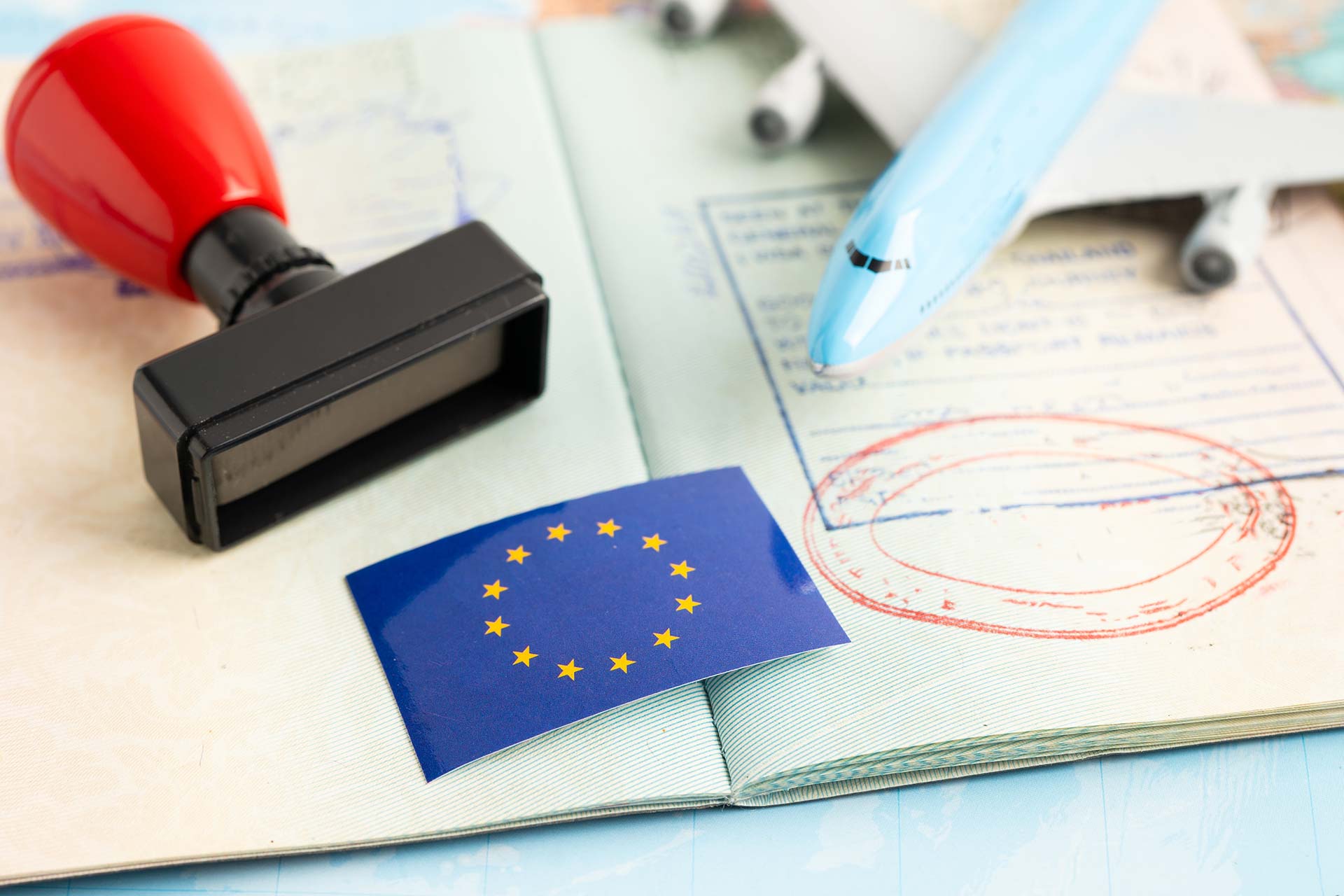
Applying for a Romanian Residence and Permanent Residence Permit
Holders of a long-stay visa are entitled to apply for a residence permit in Romania. The application must be submitted on the same legal basis as the one used for obtaining the visa. An exception is made for family members of Romanian citizens or residents who entered the country for reunification—they may later apply for a residence permit for work or other purposes, if eligible.
The residence permit can be renewed multiple times, provided the legal grounds remain valid and there are no violations of residence conditions. The foreign national must submit the following documents:
- A valid passport;
- Proof of address in Romania;
- Health insurance;
- Receipt for payment of government fees;
- A document confirming the purpose of stay (e.g., birth certificate, employment contract, etc.);
- Criminal record certificate;
- Proof of sufficient financial means (e.g., salary or pension statement, bank account statement);
- A medical certificate.
The application must be submitted in person to the immigration office in the applicant’s place of residence, at least 30 days before the visa expires. Standard processing takes up to 1 month, but may be extended by 15 additional days if further review is needed. If the application is based on marriage, the process may take up to 3 months, as an interview with both spouses is required.
The consular fee is €120, payable in cash, via payment terminals at CEC BANK S.A., or by bank transfer to the state treasury. IBAN codes for all branches are available on the Ministry of Finance website.
A long-term residence permit is issued for:
- 10 years — for family members of Romanian citizens;
- 5 years — for other eligible applicants.
To qualify, the applicant must have legally resided in Romania for the past 5 years. Absences from Romania may not exceed 6 consecutive months or a total of 10 months during the qualifying period. Exceptions apply to individuals traveling abroad for international transport activities, provided these are documented.
If the individual held a student residence permit, only half of the study period is counted toward permanent residency eligibility. Time spent in Romania on a visa is not considered. Likewise, periods of seasonal employment do not count toward the 5-year requirement.
Applicants with international protection status who are actively involved in the social, cultural, and economic life of Romania may apply for permanent residency after 4 years. Spouses of Romanian citizens who have been married for at least 5 years may apply after 2.5 years of legal residence.
Investors who contribute €1,000,000 or more to Romanian business development and entrepreneurs who create 100+ full-time jobs are exempt from the 5-year residency requirement.
Required documents for permanent residency:
- Application form;
- Copy and original of the passport with border entry stamp;
- Health insurance policy;
- Copy and original of the lease or property ownership document for housing in Romania;
- Proof of financial means (except for family members of Romanian citizens);
- Criminal record certificate issued by Romanian police;
- Marriage certificate (if applicable).
Minor children automatically acquire the right to permanent residence if both parents are granted PR status. If only one parent holds permanent residency, notarized consent from the other parent is required. Additionally:
- Copy and original of the child’s passport;
- Proof of address in Romania;
- Translated and apostilled birth certificate, if issued abroad.
Once the documents are submitted, an interview is conducted to assess Romanian language proficiency. A €52 administrative fee must also be paid, either at CEC BANK S.A. locations or online via ghiseul.ro. Foreign family members of Romanian citizens are exempt from this fee.
Processing takes 6 to 9 months. The applicant is notified in writing within 15 days after a decision is made. Once approved, they must visit the immigration office within 1 month to collect their permanent residence permit.
In the event of a refusal, the authorities notify the applicant within 15 business days. The decision may be appealed to the Bucharest Court of Appeal within 1 month of receiving the notification.
Obtaining Romanian Citizenship and Full Immigration Status
According to the Romanian Citizenship Law, a foreign national may acquire a Romanian passport if they meet the following criteria:
- Are at least 18 years old;
- Have legally resided in Romania for a minimum of 8 years;
- Demonstrate loyalty to the Romanian state through their behavior;
- Have proficiency in the Romanian language;
- Are familiar with local culture and traditions;
- Know the provisions of the Constitution and the national anthem;
- Have no criminal record.
The required period of residence is reduced by half for refugees, individuals of exceptional public interest, and investors who have contributed more than €1,000,000 to the Romanian economy.
For foreign nationals married to a Romanian citizen, the minimum residence requirement before applying for citizenship is 5 years.
Applicants must prepare the following:
- Original and copy of a valid passport;
- Permanent residence permit;
- Certificate issued by the General Inspectorate for Immigration confirming the required legal period of residence;
- Apostilled civil status documents (e.g., birth certificate, marriage or divorce certificate, name change certificate, etc.);
- Proof of legal housing in Romania (rental agreement or property ownership contract);
- Notarized declaration of personal responsibility, confirming that the applicant poses no threat to national security or public order;
- Proof of the Romanian citizenship of the spouse (if applicable);
- Criminal record certificate;
- Evidence of lawful means of support, such as an income certificate for the past 3 years.
For minor children, the following additional documents are required:
- Birth certificate;
- Written consent from both parents and from the child (if over 14), signed in the presence of a notary public.
All documents issued abroad must be translated into Romanian by a sworn translator and notarized.
Common Issues in the Romanian Immigration Process
At every stage of the immigration process, starting with the visa application, candidates may face the risk of refusal. Foreign nationals can be denied entry or residence in Romania if they:
- Submit false or misleading information;
- Violate the conditions of their stay;
- Pose a threat to national security, public order, or the health of the population.
However, the most frequent reason for rejection is much simpler: incorrectly completed forms, missing supporting documents, or translation errors. In many cases, applicants also fail to submit additional requested documents on time, resulting in the termination of their application by the immigration office.
Such problems can be avoided by working with a professional immigration firm. The key is to choose specialists with proven experience in securing Romanian citizenship, residence permits, or permanent residency.
The most efficient route in terms of procedure, time, and cost is through the simplified citizenship program. Immigration lawyers assess your eligibility and handle the full preparation of all required documents.
Life in Romania After Relocation
Since 2007, Romania has been a member of the European Union. While the standard of living still differs from that of more developed EU member states, many areas of life show positive growth trends. Salaries are also on the rise: according to the National Institute of Statistics, the average monthly income now exceeds €1,200 before taxes.
The healthcare system, like those in Italy, Germany, and France, is based on centralized social insurance. Approximately 85% of the population is covered by policies that include the full range of medical services. At the same time, Romania has one of the lowest healthcare expenditures among EU member states.
Rental prices vary depending on the size, condition, and location of the property. In Bucharest, a two-room apartment of 50 m² can be rented starting from €400 per month. Real estate prices in the capital start at approximately €60,000.
Best Places to Relocate in Romania: Cities and Regions Overview
Young professionals, entrepreneurs, and people with an active lifestyle typically choose large metropolitan areas for relocation. Families with children often prefer quieter and more eco-friendly regions, while resort towns by the sea or in the mountains are ideal for those seeking wellness and relaxation.
- Bucharest.
As the capital and largest city in Romania, Bucharest is home to over 2.1 million residents. It offers a mix of historic architecture, modern business hubs, trendy cafés, and green parks, making it an excellent choice for active and ambitious individuals. However, it’s important to note that air pollution levels here are higher than in most other Romanian cities. - Timișoara.
With a population of around 315,000, Timișoara is well-known for its vibrant cultural scene, diverse restaurants and nightlife, and general openness to foreigners. The city stands out for its low traffic congestion, public safety, and the high level of English proficiency among locals — making it suitable for immigrants from all backgrounds. - Cluj-Napoca.
A dynamic university town located in the scenic province of Transylvania, Cluj-Napoca combines rich architecture with a fast-paced urban environment. It is popular among students, young professionals, foodies, and lovers of medieval heritage and fine dining. - Brașov.
Nestled in the mountains, Brașov is a historic city filled with medieval towers, cathedrals, and fortresses. It is a favorite among tourists, and many locals speak conversational English. The city offers free public Wi-Fi in most areas and is ideal for winter sports enthusiasts, being located close to some of Romania’s top alpine resorts. - Constanța.
As Romania’s largest port city on the Black Sea coast, Constanța is known for its seaside resorts, historic architecture, and vibrant tourism scene, especially during the summer. It’s a great destination for those who enjoy a marine climate, water sports, or want to start a service-based business in a popular tourist area. - Oradea.
Oradea offers clean air, a well-developed infrastructure, and a more relaxed pace of life, with a population of around 210,000. The low traffic volume contributes to excellent environmental conditions, making it a good choice for those seeking urban comfort in a less crowded setting.

